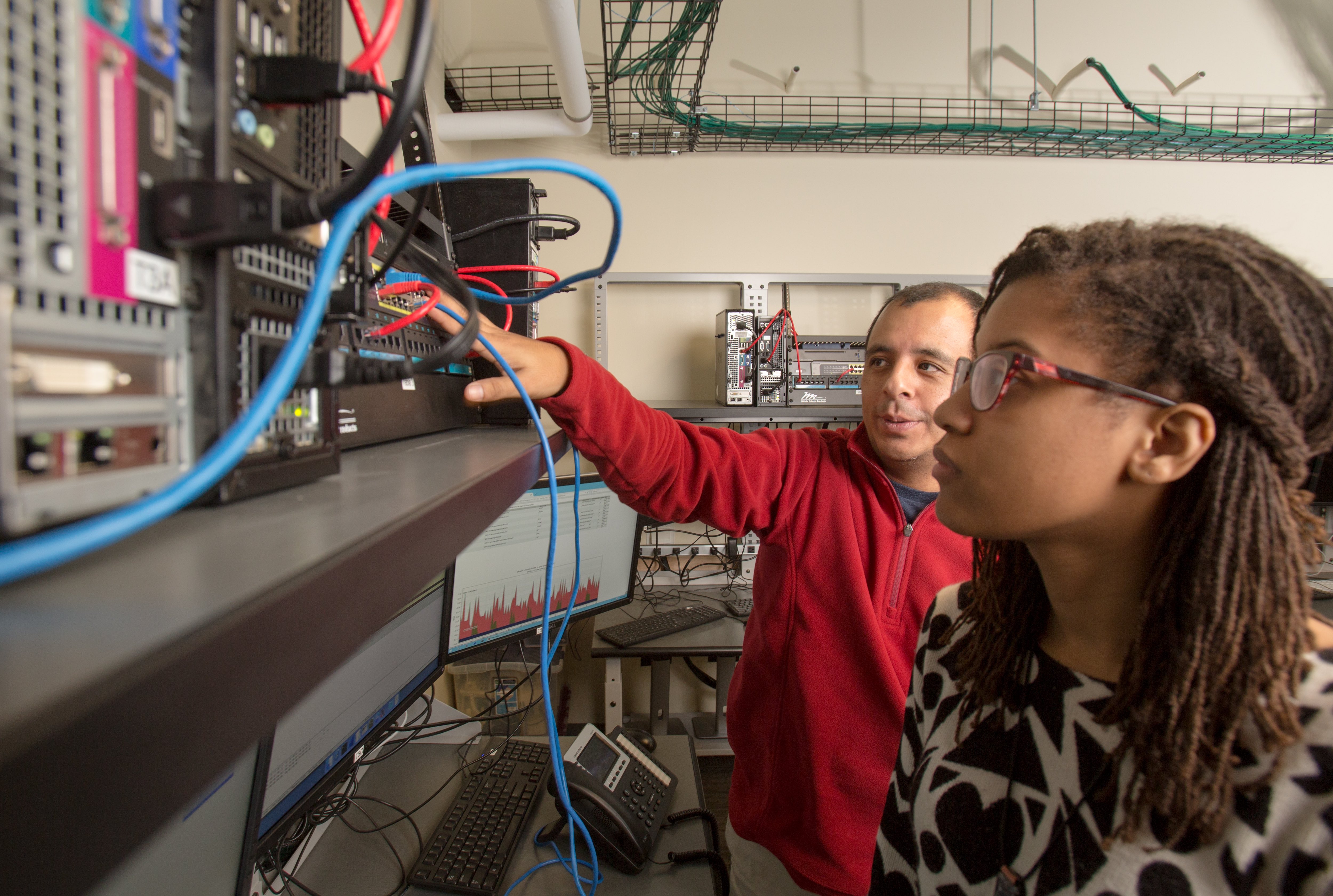A large portion of Southeast Ohio does not have access to minimum broadband internet speed as specified by the Federal Communications Commission, but a solution is in the works. In a matter of months, nearly $800 million from the U.S. Department of Commerce’s Broadband Equity, Access and Deployment (BEAD) funding will go into effect. The BEAD funding will expand broadband infrastructure in parts of Ohio that lack quality internet access and create thousands of jobs in the process. Ohio University will help train this new 5G workforce starting this summer, through a new 5G Readiness Certification.
OHIO’s 5G Readiness Certification will provide those interested in entering the telecommunications field with broadband basics and hands-on learning. The 5G curriculum was created by the Wireless Infrastructure Association (WIA) and includes both a hands-on, in-person and theoretical, online component. Ohio University signed a partnership with WIA to use this curriculum at the state’s request.
Offering the 5G Readiness Certification was made possible thanks in part to more than $435,000 in funding from a Super RAPIDS grant from the Ohio Department of Higher Education. Dr. Julio Arauz, Associate Professor and Graduate Chair of the J. Warren McClure School of Emerging Communication Technologies wrote the application for the grant which was funded at 100%. The funding will be used to purchase broadband equipment for the program that goes beyond certification to provide students with additional experiential learning opportunities.
“Our proposal for Super RAPIDS was to get the equipment to teach the curriculum as well as enhance the curriculum and create new laboratory experiences,” said Arauz. “The certification is well put together. It covers all the basics from what are wireless networks all the way to how to do some basic testing at a cell site.”
Regional Impact
Ohio University will teach at least three 5G Readiness cohorts, with the first beginning this July. The first three cohorts will contain students from the Athens campus, as well as the OHIO Lancaster , OHIO Southern and OHIO Eastern regional campuses to help bolster the broadband workforce, not only in Athens but throughout the whole region. Ohio University will subsidize the cost of the certification for students in these cohorts as an investment in Southeast Ohio, meaning these students will receive training at no cost.
“I’m excited to partner with the Scripps College and the McClure school to offer this great opportunity to our regional campus students. This unique opportunity will provide training for five RHE students at no cost in the first three cohorts at Lancaster, Eastern and the Southern Campuses,” said Vice Provost for Regional Higher Education and Partnerships Dr. Lewatis McNeal. “Upon the completion of this training, these students will be prepared to immediately enter the workforce.”
The course itself is made up of four microcredentials including wireless broadband infrastructure, 5G ecosystems, inbuilding and wireless solutions and 5G and broadband deployment. In-depth labs will supplement the more theoretical aspects of training. Labs will cover different topics like RF principles, hands-on 5G testbed configuration, indoor wireless systems, geographical information systems and RF planning.
“We told the state that to complement the certification we are going to create 10 lab exercises in 2024 and 10 lab exercises in 2025,” said Arauz. “These labs are more hands-on to help students visualize how all of this works.”
Powering Broadband Workforce Development
Providing 5G Readiness training is only the newest endeavor in Ohio University’s effort to expand internet access in the region. Through the Voinovich School of Leadership and Public Service , OHIO currently leads S outheast Ohio’s regional hub for broadband and 5G workforce development . The hub is responsible for gathering all the entities and partners involved, working to track the expansion of broadband training—and if those who receive training are getting employed, developing and communicating funding possibilities for broadband expansion, overseeing budgets and program developments with educational partners and identifying any barriers or issues that may come up.
“I am very excited about the McClure School and Dr. Arauz’s work to get 5G certifications available to people in our region,” said OHIO’s Senior Research Manager for Broadband Laurie McKnight. “These will be the first 5G trainings in our 25-county region, and I am so proud to be even a small part of this incredible endeavor. Our work together through this node will hopefully provide the workforce needed to increase broadband and cell service that will decrease the digital divide in Southeast Ohio.”
Dean of Scripps College of Communication Dr. Scott Titsworth also expressed excitement about the training and emphasized its importance for internet users and the workforce.
“This program is an exciting collaboration among multiple Ohio University partners that will have meaningful impact in communities throughout Southeast Ohio,” said Titsworth. “We welcome the opportunity to help families become connected to reliable and affordable high-speed connectivity while also opening new employment opportunities for individuals who want to enter an exciting and expanding career field.”
For more about the 5G Readiness Certification, or to apply visit: http://www.ohio.edu/5g





